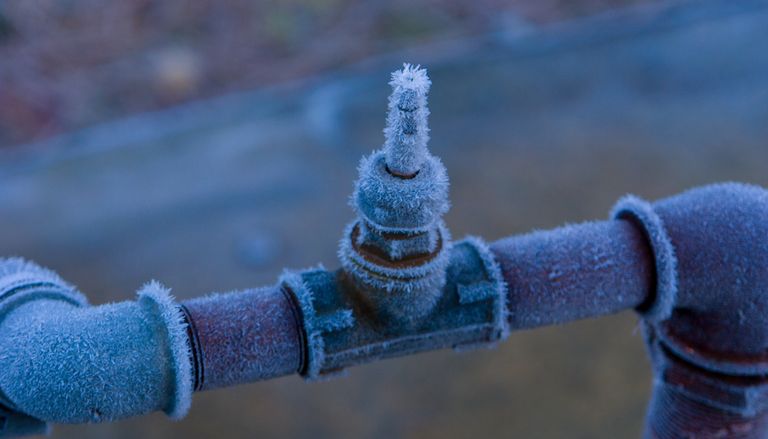We've found the article involving Preventing and dealing with frozen pipes below on the net and believe it made perfect sense to discuss it with you here.

Winter can damage your pipes, especially by freezing pipes. Right here's just how to avoid it from taking place and what to do if it does.
Introduction
As temperatures decrease, the risk of icy pipes rises, potentially resulting in costly repair services and water damage. Recognizing just how to prevent icy pipes is essential for property owners in cold climates.
Understanding Icy Pipelines
What triggers pipes to ice up?
Pipelines freeze when exposed to temperatures listed below 32 ° F (0 ° C) for expanded durations. As water inside the pipelines ices up, it broadens, putting pressure on the pipe walls and possibly causing them to break.
Threats and damages
Icy pipes can cause water system disturbances, property damages, and pricey fixings. Burst pipelines can flooding homes and create considerable structural damages.
Signs of Frozen Water Lines
Determining icy pipes early can stop them from breaking.
Just how to identify icy pipelines
Look for reduced water flow from taps, uncommon odors or sounds from pipes, and visible frost on subjected pipes.
Prevention Tips
Protecting vulnerable pipelines
Cover pipelines in insulation sleeves or use heat tape to shield them from freezing temperatures. Focus on pipes in unheated or external locations of the home.
Home heating techniques
Keep interior areas effectively heated, particularly areas with pipes. Open up closet doors to permit warm air to distribute around pipelines under sinks.
Protecting Outdoor Pipes
Yard pipes and outside faucets
Separate and drain pipes yard hoses prior to winter season. Mount frost-proof spigots or cover outdoor taps with protected caps.
What to Do If Your Pipelines Freeze
Immediate actions to take
If you think icy pipelines, maintain faucets open to soothe stress as the ice thaws. Make use of a hairdryer or towels soaked in hot water to thaw pipes gradually.
Long-Term Solutions
Architectural modifications
Think about rerouting pipelines far from exterior walls or unheated areas. Include additional insulation to attics, basements, and crawl spaces.
Upgrading insulation
Purchase high-quality insulation for pipes, attic rooms, and walls. Proper insulation aids keep constant temperatures and minimizes the risk of frozen pipes.
Final thought
Avoiding frozen pipelines requires aggressive procedures and quick reactions. By recognizing the reasons, indicators, and preventive measures, home owners can secure their plumbing throughout cold weather.
Helpful Tips to Prevent Frozen Pipes this Winter
UNDERSTANDING THE BASICS: WHY PIPES FREEZE AND WHY IT’S A PROBLEM
Water freezing inside pipes is common during the winter months, but understanding why pipes freeze, and the potential problems it can cause is crucial in preventing such incidents. This section will delve into the basics of why pipes freeze and the associated problems that may arise.
THE SCIENCE BEHIND FROZEN PIPES
When water reaches freezing temperatures, it undergoes a physical transformation and solidifies into ice. This expansion of water as it freezes is the primary reason pipes can burst. As the water inside the pipe freezes, it expands, creating immense pressure on the walls. If the pressure becomes too great, the pipe can crack or rupture, leading to leaks and water damage.
FACTORS THAT CONTRIBUTE TO PIPE FREEZING
- Low Temperatures: Extremely cold weather, especially below freezing, increases the risk of pipes freezing.
- Uninsulated or Poorly Insulated Pipes: Pipes located in unheated areas, such as basements, crawl spaces, or attics, are more prone to freezing. Insufficient insulation or lack of insulation altogether exacerbates the problem.
- Exterior Wall Exposure: Pipes running along exterior walls are susceptible to freezing as they encounter colder temperatures outside.
- Lack of Heating or Temperature Regulation: Inadequate heating or inconsistent temperature control in your home can contribute to frozen pipes.
PROBLEMS CAUSED BY FROZEN PIPES
WHY CERTAIN PIPES ARE MORE PRONE TO FREEZING
- Pipe Bursting: As mentioned earlier, the expansion of water as it freezes can cause pipes to burst, resulting in significant water damage.
- Water Damage: When pipes burst, it can lead to flooding and water damage to your property, including walls, ceilings, flooring, and personal belongings.
- Structural Damage: Prolonged exposure to water from burst pipes can compromise the structural integrity of your home, leading to costly repairs.
- Mold and Mildew Growth: Excess moisture from water damage can create a favorable environment for mold and mildew growth, posing health risks to occupants.
- Disrupted Water Supply: Frozen pipes can also result in a complete or partial loss of water supply until the issue is resolved.
https://busybusy.com/blog/helpful-tips-to-prevent-frozen-pipes-this-winter/
- Location: Pipes located in unheated or poorly insulated areas, such as basements, crawl spaces, attics, or exterior walls, are at higher risk of freezing.
- Exterior Pipes: Outdoor pipes, such as those used for irrigation or exposed plumbing, are particularly vulnerable to freezing as they are directly exposed to the elements.
- Supply Lines: Pipes that carry water from the main water supply into your home, including the main water line, are critical to protect as freezing in these lines can affect your entire plumbing system.
- Underground Pipes: Pipes buried underground, such as those connected to sprinkler systems or outdoor faucets, can be susceptible to freezing if not properly insulated.

As a devoted reader on How to prepare your home plumbing for winter weather, I think sharing that piece was beneficial. For those who enjoyed reading our blog post if you please be sure to share it. I enjoy your readership.
Call Today
Comments on “Important Advice to Prevent Frozen Pipes in Cold Weather: Professional Guidance”